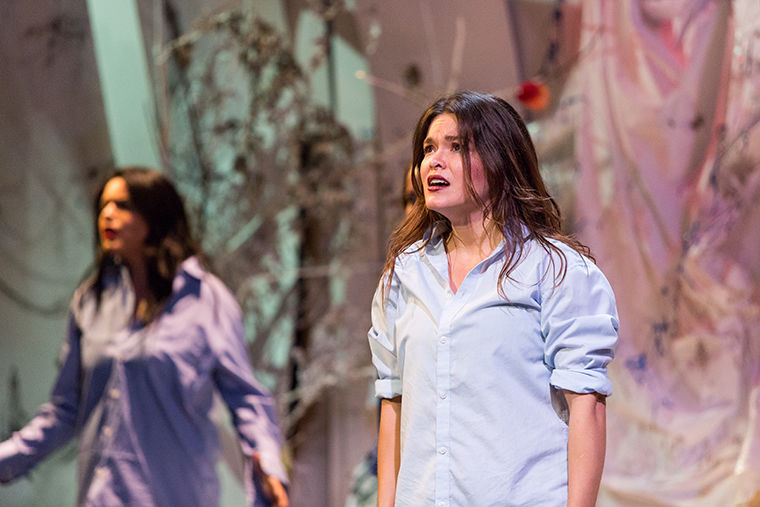Coming together—International festival highlights Latino experience
October 9, 2017
Artists from Colombia, Puerto Rico, Mexico, Cuba, New York, Los Angeles and Chicago are coming together through Oct. 29 to discuss health, immigration and political issues as well as to create the first Chicago International Latino Theater Festival.
Beginning Sept. 29, the festival is showcasing 11 productions from the four countries at various locations including the Victory Gardens Theatre, 2433 N. Lincoln Ave., and the National Museum of Mexican Art, 1852 W. 19th St. Tickets are $15–$25 each.
Myrna Salazar, Chicago Latino Theater Alliance’s co-founder and executive director, started the organization in October 2016, and her first long-term project for the organization was to create the festival. Salazar said the festival’s purpose is to bring different countries together and embrace Latino culture through storytelling.
“The organization aims to preserve and promote our cultural heritage by fostering the best works of our Latino playwrights and theater companies,” Salazar said, “and by representing productions that speak of our narrative from the various Latino cultures that are a part of the tapestry of the Chicagoland area.”
Noticing the limited representation of Latino voices, Carlos Tortolero, president and founder of the National Museum of Mexican Art, wanted to contribute to the festival and provide a platform for the Latino art community by hosting the festival’s first performance, “I, The Worst of All,” by Iraida Tapias.
“There is no large Latino theater complex,” Tortolero said. “If we have a platform, we can show the beauty of the Latino plays and also work to get a complex, so we can get a theater of our own down the line.”
Salazar said the productions will be presented mainly in Spanish with English subtitles, so everyone will be able to experience the festival.
Berenice Vargas, associate director of the Chicago Latino Theater Alliance, said most of the productions are political to not only give representation but reflect the nation’s current climate.
“We just want to also represent our Latino voices, have a wider audience and for them to connect to these experiences,” she said.
Salazar said she hopes the festival touches the audience with stories from different cultures.
“[The festival] illustrates the diversity of the Latino experience. When we illustrate the Latino experience, we can showcase it to a broader audience,” Salazar said. “I hope that the Chicago theater community embraces and supports this festival [as it] crosses over to the various cultural groups in Chicago.”








